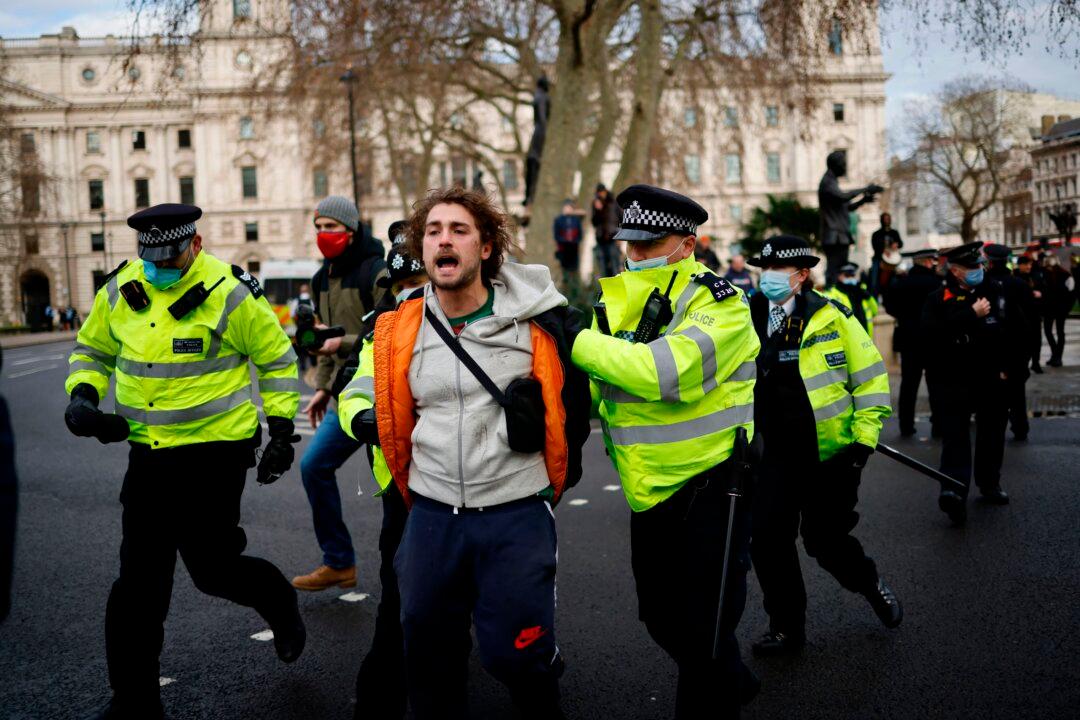Almost 6,500 offences related to the CCP virus were prosecuted in the UK in the first six months of the pandemic, according to statistics published by the Crown Prosecution Service (CPS) on Thursday.
Between Apr. 1 and Sept. 30 last year, 2,106 defendants were prosecuted for 6,469 CCP (Chinese Communist Party) virus-related offences, with a conviction rate of 90 percent.





